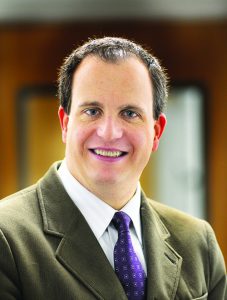
 By Michael Groat
By Michael Groat
Ph.D. Menninger Clinic
The challenge of providing ethical, compassionate, and patient-centered care can be strenuous. High patient volume, continuous patient contact, complex medical needs, decreased income, the demands of paperwork, limited coverage for vacations, government regulations, and the perfectionistic, workaholic characteristics of many physicians all fuel a potentially toxic brew of stress.Stress, or the heightened emotional and physical arousal that accompanies perceived demands, requires adequate problem-solving to relieve tension. Most of the time, physicians and health care administrators find solutions and manage stress well. When stress piles up and lingers, however, the ability to manage stress can deteriorate, especially as fatigue and the perception of insurmountable problems increases. Unresolved stress leads to burnout—a state of mental or physical exhaustion caused by excessive and prolonged stress.
Burnout approaches gradually and sequentially. Thus, learning to recognize the stages of burnout can lead to prevention.
In the early stages of burnout, symptoms like persistent anxiety, irritability, headaches, GI upset, forgetfulness, and insomnia may be present, signaling states of increased arousal. As burnout progresses, efforts to compensate for sustained stress through energy conservation take over. Physicians may show late for work, drink alone and often, use frequent sleep aids, have less interest in sex, procrastinate, and spend less time with colleagues and loved ones.
In the later stages of burnout, exhaustion peaks. Physicians can experience chronic mental and emotional fatigue, persistent complaints of headaches, stomach or bowel problems, unhappiness, tearfulness, loss of interest in work, and social isolation. At worst, the physician may also entertain suicidal thoughts as a way of coping with unbearable misery.
According to various surveys, 31% to 67% of physicians report having experienced symptoms of burnout, especially in high demand fields such as family medicine, emergency medicine, obstetrics, and gynecology. And most physicians report fatigue, demoralization, and muscle tension as a result of workplace stress.
Not only does the physician suffer, but so may the patients. Research indicates that physician burnout negatively impacts patient outcomes, and increases the risk of disruptive behavior in the workplace (e.g., angry outbursts).
Seven ways to manage stress and prevent burnout
From my experience treating physicians and other professionals, I recommend the following tips to ease stress:
- Re-evaluate priorities: Now’s the time to make some lifestyle changes and review your values. You may decide to go home earlier one evening a week and spend rejuvenating time with friends or family. Remember what is most important to you, and live accordingly.
- Be alert to red flags: Many physicians use their professional capacity to maintain emotional distance to ignore their own feelings. Ignoring pain and distress, however, is like ignoring messages the brain is trying to convey to you, especially when the emotions warrant notice. Paying attention to signs of extended stress symptoms can prevent worsening difficulties and health problems.
- Take care of yourself: Often times when we are very stressed our good coping strategies fall by the wayside. Self-care is vital even in times of low stress. Eat right, get enough sleep, take a walk or do something else that rejuvenates you.
- Share your concerns with others: Knowing you’re not the only one stressed and talking through ways to reduce even minor stressors can help.
- Take time out from the situation: Give yourself permission to let problems go for a while. Allow time to rest, play, and relax.
- Tackle problems in small steps: Huge problems are made easier when broken down. Taking things one day at a time helps ground us in the present, and keeps us from ruminating on future uncertainties or past regrets.
- Know your limits: Knowing our limits allows us to protect our time, our interests, and our health. When demands mount, no one is going to send us home. We have to be our own advocate, and be willing to assert when enough is enough.
If stress or anxiety is overwhelming, causing significant distress or impacting your daily functions at work or home, professional help may be needed. Granted, physicians are used to being in charge and solving others’ problems, but at Menninger we recognize that they are often very reluctant to seek help.
Personal pride, feeling overly responsible, fears of stigma and embarrassment, and excessive independence all contribute to difficulties with slowing down and fighting the ravages of stress. Preventing burnout is not a chance event. Physicians can fight back by recognizing signs of trouble early and regaining control again.
About the author: Psychologist Michael Groat is program director of The Menninger Clinic’s Professionals in Crisis inpatient program, which works with medical caregivers, executives, business owners, attorneys, administrators, and others in professions with high levels of responsibility. The professionals in the program suffer from the effects of psychiatric and/or addictive disorders, as well as stress or other personal health issues. The Menninger Clinic is a national psychiatric center for treatment, research and education, located on a new campus at 12301 Main St. southwest of the Texas Medical Center. Menninger is also a primary teaching hospital of Baylor College of Medicine.






